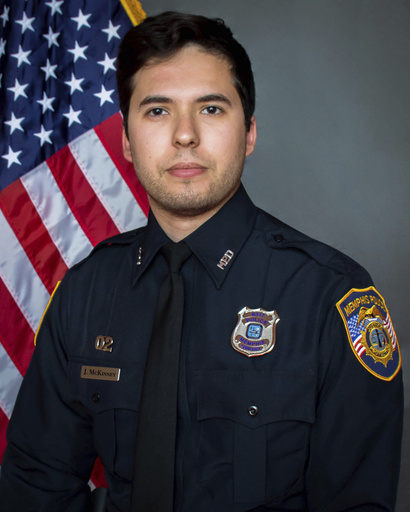MEMPHIS, Tenn. (AP) — A 17-year-old suspect charged in the fatal shooting of a Memphis police officer has not been accused of first-degree murder because information obtained by the district attorney’s office shows the officer was killed by friendly fire, officials said.
In a statement, the office of Shelby County’s top prosecutor said the 17-year-old has been charged with 13 counts including attempted first-degree murder and assault against a first responder in the death of Officer Joseph McKinney on April 12.
McKinney and an 18-year-old man, identified as Jaylen Lobley, were killed in a shootout that developed as officers investigated a suspicious vehicle. The 17-year-old suspect was wounded and remains in the hospital. Another Memphis police officer was injured and a third officer was grazed and treated at the scene.
The DA’s office did not identify the 17-year-old suspect in statements released Wednesday about the charges, which carry up a maximum of 400 years in prison. The statements did not provide details about friendly fire aspect of the shooting.
“We have not proceeded with a murder charge at this time because current information indicates that Officer McKinney was killed by friendly fire,” one of the statements said. “Although current information indicates friendly fire, we believe the 17-year-old’s reprehensible actions are still the real cause of Officer McKinney’s death.”
The Memphis Police Department on Thursday referred questions to the Tennessee Bureau of Investigation, which is looking into the shooting.
“We continue to mourn the death of Officer Joseph McKinney, as we learn this new information,” police chief Cerelyn “CJ” Davis said in a statement.
The TBI declined comment on the DA’s statements about friendly fire.
Lobley was arrested last month in a stolen vehicle with an illegally modified semiautomatic weapon that converted it to what Davis described as a “fully automatic machine gun.”
District Attorney Steve Mulroy said a Shelby County Judicial Commissioner made the decision to release Lobley on his own recognizance — with conditions including reporting and curfew — and did so despite prosecutors strongly arguing against it, citing the defendant’s danger to the community.
